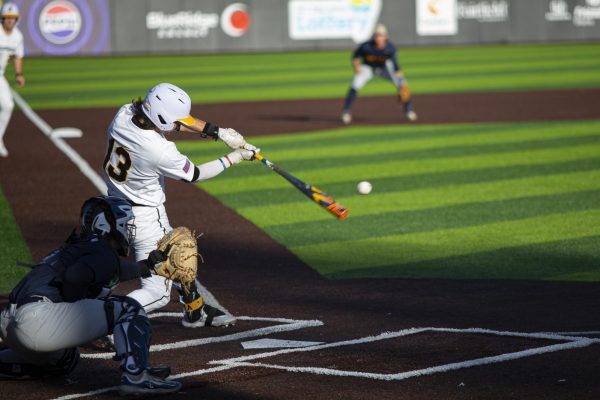One of the most pivotal keys to life is a good education. From how you speak to others to how you come across in a job interview, everything always comes back around to how good of an education you have.
In today’s economy, getting a good job almost requires a college degree. Going back to the baby-boomer age or Generation X, a high school diploma was sometimes enough for a high paying job.
This brings us to one of the most talked about debates in all of college and professional sports: Should a one and done NCAA college athlete be allowed to go pro?
Yes. Whether or not a college athlete is a freshman or senior, they should have the opportunity to turn professional if they feel it is best for them.
In Major League Baseball and the National Hockey League, these questions do not matter. The MLB allows team to draft high school players with a farm system that lets them work their way up to the majors and the NHL allows anyone 18-20 years old to enter the draft.
The discussion about one and done has mainly focused on the National Basketball Association after they discontinued allowing high school seniors to enter the NBA draft but still allow one and done players.
Recently though, a lot of the talk has been on the National Football League and the NCAA football’s draft eligibility rules. College-athletes have to complete three years of college to enter the NFL draft.
Part of the increase in discussion is because of many NFL caliber college football players getting injured before they even have the chance to turn pro.
Star LSU junior running back Leonard Fournette rushed for 1,953 yards and 22 touchdowns last season despite missing a couple games and hurting his ankle in the preseason. This has left a lot of people questioning the rule of allowing NCAA athletes to turn pro whenever they want.
Fournette himself said that he would have stayed in college even if there was no three year rule, but it’s easy to wonder if the injury would have happened at all if he went pro last year.
Former South Carolina running back Marcus Lattimore was one of the top players in the country and arguably a top 10 NFL draft pick as a sophomore in college. His junior season he tore every ligament in his knee, damaged nerves in a game and was forced to retire at the age of 23.
Lattimore lost millions of dollars and was never the same player. Imagine if he were able to go pro just one year earlier?
According to the National College players association, 85 percent of scholarship college athletes live below the federal poverty line.
Not all college athletes come from wealthy families and many of them play sports from a young age hoping to make it professionally and earn money to help their families.
“Student-athletes go through this academic machinery, left torn, worn, no idea of their purpose,” former Florida State football player Myron Rolle said at a 2014 NCAA hearing.
Athletes do struggle to keep up with their studies. Being a student-athlete takes a lot of commitment and sometimes, completing four years with a solid GPA can be a struggle for those who feel they can turn pro.
If going pro does not pan out, you can always go back to school. In 2014, UNC Chapel Hill offered former scholarship athletes the chance to return and complete their studies. Opportunities are still out there.
In no way whatsoever am I saying that education is not important. Education is one of the great things that we have in our country, but with some student-athletes who are so fortunately gifted to have professional talents, they should be allowed to take the next step in their life before something takes it from them.
Story by: Jason Huber, Sports Editor











